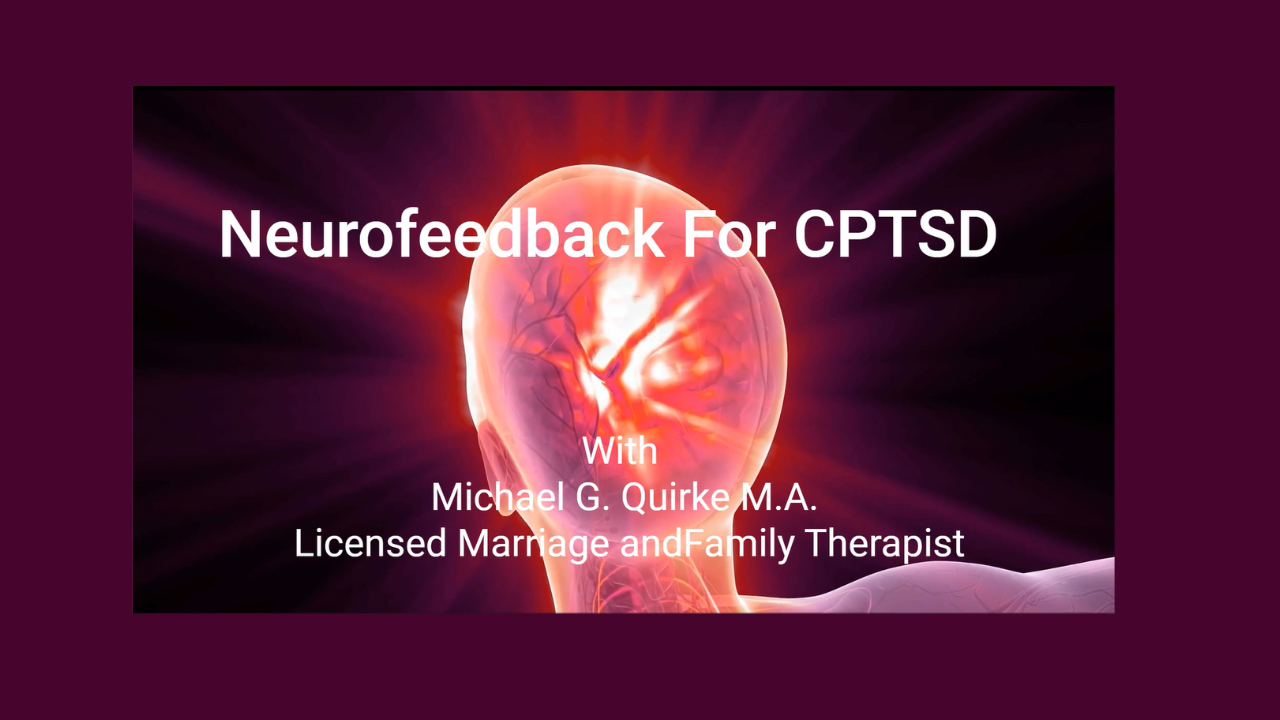 You want to get better and not feel depressed and anxious anymore. And like many people you’re concerned about the dangers of psychiatric drugs. It might be time to give serious consideration to neurofeedback for chronic anxiety
You want to get better and not feel depressed and anxious anymore. And like many people you’re concerned about the dangers of psychiatric drugs. It might be time to give serious consideration to neurofeedback for chronic anxiety
Chronic anxiety and depression plague many people. And if you are like them, it’s been hard finding a treatment that really works.
Therapy has helped, and you might take medication that’s been prescribed to you. However, you wish that there was something more that you could do.
It turns out, you can.
Neurofeedback treatment for chronic anxiety and mood disorders can be another useful tool to combat these issues. Neurofeedback is a form of psychotherapy known as biofeedback. Because biofeedback treatment methods teach clients how to gain mastery over their physiology, it holds the potential to empower you to take back control that was lost with the onset of the anxiety or depression.
But, is neurofeedback treatment really as effective as some claim? Consider some points.
Effectiveness of Neurofeedback
Neurofeedback therapy is a treatment method in which you and a therapist use specialized technology to study your brainwaves. The tool is an EEG (electroencephalogram). It reads your brainwaves through electrodes which we gently place on your head. The medical grade EEG equipment reads out your brainwave patterns, which your therapist studies and then interprets the results.
Neurofeedback is a form of technology assisted psychotherapy. It’s like physical therapy…but for your brain. That’s why so many people refer to it as brain training
EEG brain waves powerfully affect our emotions, our mental clarity and many aspects of our physiology.
Together, you and your therapist practice techniques that allow you to adjust your brainwave patterns so that you feel less anxious or depressed. When using neurofeedback treatment for chronic anxiety or mood disorders, you can see the changes in your brainwave patterns as they occur in real-time. This helps to reinforce the fact that what you are doing to treat the problem actually works.
The idea is that you can eventually use the techniques you’ve learned for yourself outside of session whenever you feel anxious or depressed. Over time, this can help with managing mood disorders and anxiety.
A Research Study Example
Decades of clinical experience have demonstrated neurofeedback to be an effective treatment for:
- ADHD
- ADD
- Stress
- Migraines
- Seizures
- Traumatic Brain Injury
- PTSD.
According to the International Society for Neurofeedback Research,“This literature documents the efficacy of NF for numerous conditions, inclusive of: ADHD, mood disorders, anxiety disorders, obsessive compulsive disorder, epilepsy, substance use disorders, PTSD, autism, learning disorders, brain injury, insomnia, and headaches. While there are a few randomized trials showing that NF is equivalent to a placebo, there are a larger number that demonstrate greater efficacy. Moreover, the number of randomized controlled trials showing efficacy are being published with growing frequency.”
They go on to state,
“…research and clinical evidence shows repeatedly that when NF is added to other therapies the outcomes are typically superior.”
Researchers have turned their gaze towards applying neurofeedback therapy for depression and other mood disorders and have made efforts to determine whether neurofeedback therapy is an effective treatment method .
Consider this example, a pilot study examined nine people, both men and women, ranging in age from 27-62 years old. All were diagnosed with depression.
For ten weeks the study subjects participated in 30 neurofeedback sessions. Afterward, the researchers analyzed whether the participants still had symptoms of depression. One participant saw a reduction in symptoms while four other study participants experienced a remission of symptoms.
Interestingly, in this study, the treatment proved most effective for female participants.
Reasons for Effectiveness
An important reason why neurofeedback treatment for chronic anxiety can be effective is that it is an empowering treatment method. Talk therapy, support groups, and lifestyle changes are all important for chronic anxiety treatment and addressing mood disorders. However, these methods don’t always feel very empowering.
Anxiety and depression typically wear away the sense that you have any control over what’s happening to you.
With neurofeedback therapy, though, you start feeling in control again. Many clients I work with find it fascinating to not just feel the results of the neurofeedback training, but to actually observe the changes in the way their brains function.
Some reasons are, for example:
- You’re able to see how your brain functions in real-time.
- The therapist teaches you skills and procedures to better cope with anxiety and depression.
- While you practice these methods you can see changes in your EEG brainwaves occur at the same time.
- Real-time feedback reinforces that what you are learning actually has an effect.
- You gain the confidence and willingness to use these techniques outside of session because you know they work.
Neurofeedback harnesses the brain’s ability to change itself, through functioning more optimally.
One feature of neurofeedback brain training is that it helps you to learn what works—and what doesn’t work—for treating your depression or anxiety. Thus, the treatment allows you to feel empowered to use those skills when you need them the most.
Neurofeedback For Chronic Anxiety And Mood Disorders
Working with a Skilled Therapist Is Key to Success
In order to get the best results possible from neurofeedback therapy, you need to work with a therapist, a specialist trained and experienced in the technique. A neurofeedback specialist will not only know how to handle the equipment but also provide the expertise to interpret the data coming from your brain.
They can also recommend specific coping skills or methods to address the mood disorder. And, if something doesn’t work, you and your therapist can move on to other techniques. Thus, you develop a customized toolbox of coping skills for managing your anxiety or depression symptoms.
—
Neurofeedback treatment can be very helpful in addressing mood disorders such as anxiety, depression, and other mental health issues. The effectiveness of neurofeedback therapy and what makes it an effective chronic anxiety treatment lies in the fact it empowers you to take control of your anxiety or depression.
If you would like to know more, please contact me or read more about my approach to neurofeedback therapy by clicking on the link.
I also welcome you to spend some time reading through my blog. There you’ll find a number of articles on neurofeedback.



